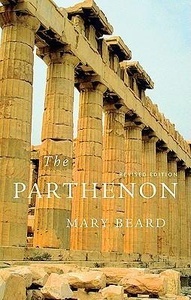The Parthenon, Revised Edition

Editorial Harvard University Press
Fecha de edición abril 2021 · Edición nº 1
Idioma inglés
EAN 9780674055636
240 páginas
Libro
encuadernado en tapa blanda
![]()
(0 comentarios)
PVP pendiente de confirmar.
Sin ejemplares (avisar cuando esté disponible)
Resumen del libro
Praise for the previous edition:
"Wry and imaginative, this gem of a book deconstructs the most famous building in Western history."-Benjamin Schwarz, The Atlantic
"In her brief but compendious volume [Beard] says that the more we find out about this mysterious structure, the less we know. Her book is especially valuable because it is up to date on the restoration the Parthenon has been undergoing since 1986."-Gary Wills, New York Review of Books
At once an entrancing cultural history and a congenial guide for tourists, armchair travelers, and amateur archaeologists alike, this book conducts readers through the storied past and towering presence of the most famous building in the world. In the revised version of her classic study, Mary Beard now includes the story of the long-awaited new museum opened in 2009 to display the sculptures from the building that still remain in Greece, as well as the controversies that have surrounded it, and asks whether it makes a difference to the "Elgin Marble debate."
Biografía del autor
Mary Beard es catedrática de Clásicas en la Universidad de Cambridge. Es muy conocida por su atractiva manera de enseñar y divulgar la Historia, especialmente la de la Antigua Roma. Es miembro de la Academia Británica y de la Academia Americana de Artes y Ciencias; y Doctora Honoris Causa de distintas universidades, entre las que se encuentran la Carlos III, de Madrid, y la Oberta de Catalunya, de Barcelona. Es autora de numerosos libros como "SPQR", "El triunfo romano" y "Pompeya. Historia y leyenda de una ciudad romana"; en Alianza Editorial ha publicado "La risa en la Antigua Roma", y, junto con John Henderson, "El mundo clásico: Una breve introducción". Entre los numerosos galardones que ha recibido a lo largo de su carrera cabe destacar el Premio Princesa de Asturias de Ciencias Sociales, en 2016.








